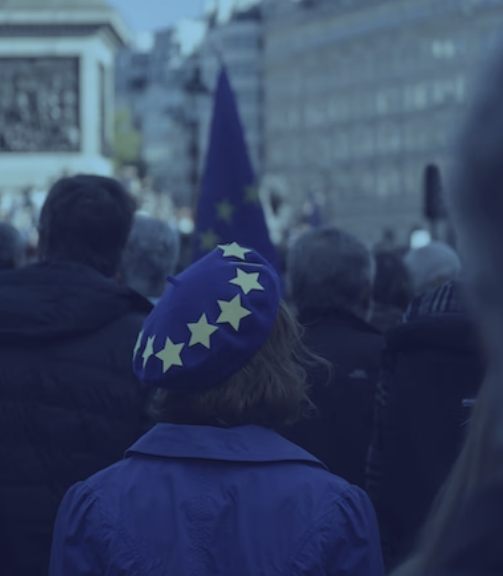
Written by Marco Zarzana
The recently created European Political Community (EPC) presents a significant opportunity for the European continent. The new forum includes 44 European countries and was conceived as a new space for political and security cooperation on issues of common European concern (Emerson 2022). The Council of the European Union (CoEU) states that the EPC aims to strengthen the continent’s security, stability and prosperity (Council of the European Union 2022). However, the EPC still lacks a clear focus, and does not have a formal structure or secretariat, hence allowing it to take several different directions. For this reason, the EU should use this forum to build a common European defence discourse that would lay the basis for creating a strong common European defence framework, which is much needed for the European continent. The Russian invasion of Ukraine has clearly highlighted the internal and external fragility of the European security and defence system. The EU could start from the European political community to emphasise the need to solve the defence problem in Europe.
The EU could take advantage of several factors to construct a defence discourse. Firstly, the security cooperation premises of the community already make it a relevant forum for such construction. Another important factor is that the focus of the EPC must necessarily deviate from that of other pan-European organisations such as the Council of Europe (Brzozowski 2022). Focusing primarily on human rights issues is off the table and thus leaves room for security discussions. Moreover, the absence of non-European allies such as the United States and the main current threat to Europe, Russia (Martinez and Droin 2022), allows the EU to frame the discussion exclusively in European terms.
The purpose of this policy brief is to illustrate how the EU can use the forum of the European Political Community to build a discourse on the need for a common European defence. A caveat here is that the EU should not try to transform the EPC into an organisation of pan-European common defence. This would not be very productive as some countries taking part in the EPC have very conflicting security relations (Armenia and Azerbaijan; Greece and Turkey), and suddenly directing the path of the whole organisation towards defence would result in resistance from many European countries (Brzozowski 2022). The EU’s end goal should be instead to strive for the creation of an independent defence initiative after having built a successful defence discourse within the EPC.
The policy options put forward here, which are not mutually exclusive and should be integrated, are: 1) Starting from an informal security dialogue, 2) Building a potential preliminary coalition that would include non-EU members, 3) Using the European Neighborhood policy (ENP) to construct a defence discourse and interact with EPC countries which are part of the (ENP).
Policy Options
- Starting from an informal security dialogue
The EU should start by initiating an informal security and defence dialogue within the European political community without expecting to suddenly rush for concrete formal defence commitments within the community. This should be an interests-based dialogue, instead of one based on common European values. Due to the presence of countries with questionable democratic functioning, framing the community mainly in terms of values would make it more challenging for the wide range of European leaders who are expected to cooperate. Instead, the EU should aim to build a dialogue in terms of the geopolitical and security interests of the continent. At this stage, the EU should try to decipher the security concerns of non-EU countries following the Russian invasion of Ukraine and to what extent they believe that an autonomous and common European defence is needed.
Moreover, the EU should stress that there is a need and interest to increase cooperation on defence as is evident given the recent developments in Ukraine. Therefore, the whole European continent has a need and interest to increase cooperation on defence. More concretely, the Commission and Council President, along with the rotating Council Presidency, should include the defence of Europe among the topics of discussion of the next EPC meetings. This would be facilitated by the fact that the EPC has also been conceived as a security-based forum (Council of the European Union 2022; Nguyen 2022). In this context, the EU should try to gradually advance a novel idea of unity of the European continent as a whole against common security threats to Europe. This should be a gradual process and the EU should not seek to build the EPC entirely on this concept. However, this discourse would be a relevant step for the future of a common European defence.
- Building a potential preliminary coalition that would include non-EU members
Once the EU has initiated an informal security dialogue and engaged more concretely with countries outside the Union about the status of the continent’s defence, the EU should further this dialogue by building a potential preliminary coalition that would include both EU member states and European countries external to the EU. The presence of non-EU members would be crucial in this endeavour because it would lay the basis for the idea of a pan-European defence that would be distinct from the defence policies of the EU. An informal and preliminary coalition would be a very symbolic step to gradually construct a discourse around the need for a common defence based on the geopolitical and security interests of the continent. The EU should aim to involve key countries whose security is particularly affected by the war in Ukraine and which are not EU members, such as Georgia, Moldova and Ukraine. Their involvement would strengthen the project’s legitimacy, due to their security concerns about the Ukrainian war.
- Using the European Neighborhood Policy (ENP) to construct a defence discourse and interact with the ENP countries which are part of the EPC
In parallel to the EPC initiative, the EU should engage with the EPC countries who are part of the European Neighborhood Policy and increase security cooperation with them as part of the ENP. Doing so with ENP countries such as Moldova, Georgia and Ukraine mentioned above would be very productive. This initiative would allow the EU to construct the defence discourse in a separate channel, which is nonetheless related to what the EU would do about defence within the EPC but would be an additional tool for the construction of this discourse. This additional tool would strengthen the idea of security cooperation in geopolitical terms and regardless of EU membership, providing more opportunities to claim that the European continent needs a common defence. More importantly, using the additional channel of the ENP would improve the process of discourse production as the EU and Georgia, Moldova, and Ukraine would be able to discuss security more frequently. To enhance the security cooperation with these neighbouring countries, the EU could construct a ‘European Quad’, a security initiative similar to the quadrilateral security dialogue between the US, Japan, Australia and India (CSIS 2020). This European Quad should include the EU plus Ukraine, Georgia and Moldova and be part of the ENP. Such dialogue could potentially be a crucial step to convince other European states on the need for a common defence. A general enhanced security dialogue as part of the European Neighborhood policy and a potential initiative such as a ‘European Quad’ would be very beneficial for constructing a common European discourse.
References

 The European Union in Space: From exploration and innovation to security and autonomy
The European Union in Space: From exploration and innovation to security and autonomy  The Rise of the Right: The Threat Right-Wing Extremism Poses to Women and Feminist Efforts in Germany
The Rise of the Right: The Threat Right-Wing Extremism Poses to Women and Feminist Efforts in Germany  The silent shield – how special operations safeguard the global supply chain
The silent shield – how special operations safeguard the global supply chain  The Human Factor: How Personality and Psychology Drive Crises
The Human Factor: How Personality and Psychology Drive Crises 


